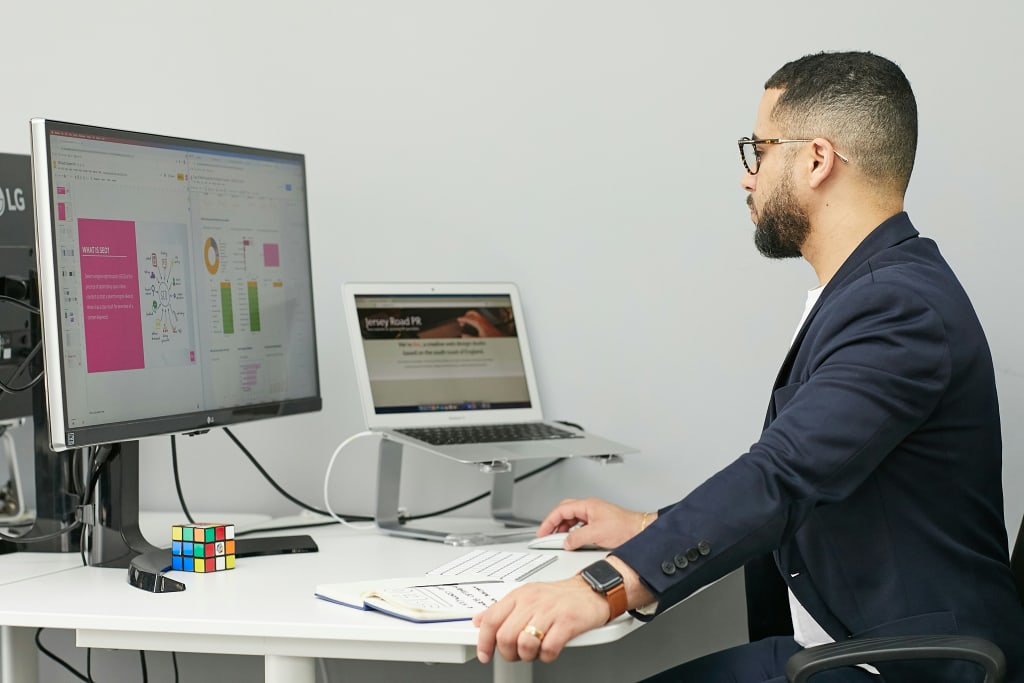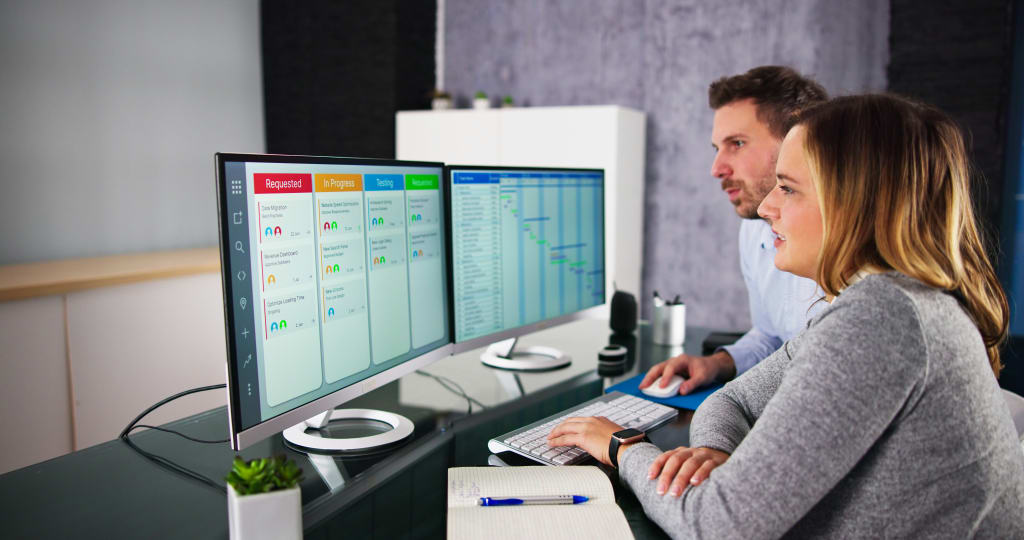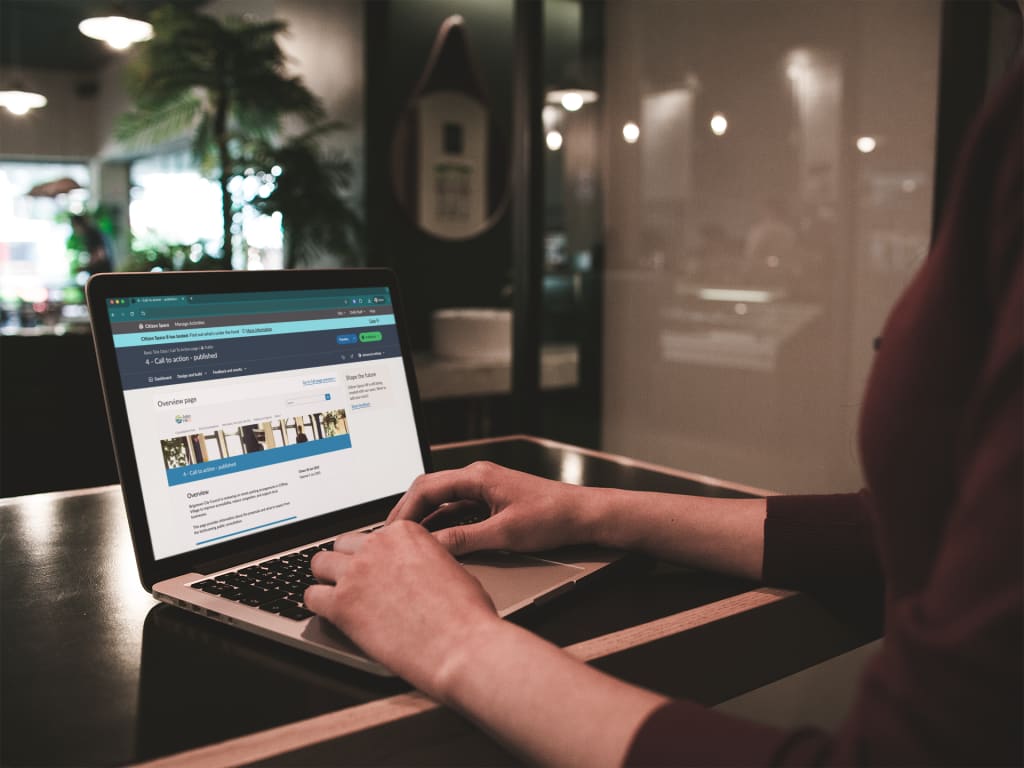
Ensuring permit and licensing processes are working effectively and efficiently is a crucial job for any local government. Licenses and permits can cover anything from road closures, to food safety, to tree removal.
However, traditional approaches to managing these regulations have often been seen as inefficient. These processes can be resource-intensive, or require individuals to navigate a great deal of bureaucracy to acquire permission for something relatively simple.
That’s why councils across the UK are modernising. Many are now using digital platforms to streamline existing processes, or creating new, faster systems that are more user-friendly for users.
The Challenge of Traditional Licensing and Permit Processes

Despite the increasing ubiquity of govtech solutions, many local authorities still rely on paper-based systems or other outdated technology to manage their licensing and permit processes.
This legacy technology is rarely fit for purpose, and can cause unnecessary delays in virtually every sector within a local economy. The familiarity of these systems, and the way they are embedded within broader frameworks can make some wary of change. However, the fact remains that they are often slow, unintuitive and difficult to navigate.
For those applying for permits – many of whom may be small businesses or sole traders – the process of interacting with these systems can be time-consuming and difficult. Over the years, many report feeling trapped in an endless cycle of printing, signing, scanning, and posting. Poor or difficult to find guidance can make this even harder, resulting in applicants having to make multiple attempts at an application. Where a manual system is used, these attempts could even be weeks apart without any automated system to check for errors or blank fields.
For local governments, this creates a significant administrative burden that only adds to the existing burden of manually entering data into multiple systems. A lack of centralisation and digital co-ordination can lead to error and miscommunication.
Other challenges common to these legacy systems include:
- Specific forms or applications being difficult to find and navigate.
- Unclear timelines and mismanaged expectations around outcomes.
- Difficulty in tracking existing licenses and permits and loss of vital data.
- Public frustration and low trust in the process and local government as a whole.
These issues can sometimes lead to public calls for deregulation. The association between regulatory systems and delays, errors and financial burden are so common that many assume getting rid of these regulatory frameworks is the answer. However, a lack of regulation brings with it many issues in of itself.
Regulatory reform – the idea of reforming the way licenses and permits are granted – is therefore a solution that could potentially please all parties. Contemporary digital solutions have the potential to create a future where local governments can regulate quickly, efficiently and without using a great deal of resources.
What is Permit Management Software?

Permit management software is software that allows organisations to digitise their licensing processes. They are platforms that manage applications from the public, helping to automate parts of the entry and review process.
While exact functionality varies, a good purpose-built permit management software should allow members of the public to:
- Find relevant permit and licensing application forms online.
- Complete those forms on the platform.
- Upload relevant documentation.
- Receive updates on their application with a clear timeline.
Some aspects of permit management software take existing systems and simplify them. For example, an existing form once digitised can be automatically uploaded to a central system rather than being manually inputted. However, it can also provide a way of rethinking the way organisations and public bodies approach regulation. Automated validations to reduce errors, ongoing notifications to reduce deadlines, are just some examples of how digital systems can change how regulatory processes work.
Permit management software can be used for essentially anything that may require an individual to apply to a council for a license or permit. This could include:
- Alcohol and entertainment licenses.
- Taxi and private hire vehicle licensing.
- Street vendor and market permits.
- Temporary planning permission for events like fairs and street parties.
These platforms are generally designed with the public in mind, rather than other organisations or developers. As such, it is important that they are as accessible as possible. This is something that a purpose-built platform will usually build-in, or assist with where that isn’t possible.
The Benefits of Using a Digital Platform for Permit Management

When introducing a new process, there is a need to ensure all staff are trained on the new system and confident in its use. This can lead some to wonder whether it is worth this initial shake-up. However, the benefits of a digital permit management system are clear.
Improving Accessibility
Permit and licensing applications are often completed by sole traders, small businesses, or members of the public who may not have the experience or resources to navigate a complex bureaucracy.
Digital platforms have the potential to simplify elements of the process. Many forms can be completed easily online, even from a mobile device. Easy to understand user guides can enable applicants to get it right the first time, or flag immediately where mistakes have been made. The inbuilt adherence to current accessibility standards of some digital platforms ensure that users with additional needs are also supported.
Where complex language, excessive paperwork or confusing processes might previously have put people off applying, a well-designed digital platform can make applications quick and easy for both applicants and assessors.
Lowering Resource Requirements
For those administering the licensing process, using legacy systems typically involves manually entering data, chasing missing information and trying to make radically different systems work together. This process can be time-consuming and frustrating.
Digital permit management software reduces the amount of manual processing required at every stage. Features such as built-in validation, automated notifications, and data consolidation mean less time spent on repetitive tasks and more time on the work that requires professional oversight.
Additionally, when all relevant information is logged in one place, it is often far easier to check existing licenses and track ongoing applications. This both requires less manpower and reduces error.
Shorter Timescales
Traditional systems often required applicants to fill out detailed applications and then wait an unknown and variable amount of time for updates. Without automated systems and easy digital tracking, they might wait weeks or months only to be told their application was missing a key field and have to start all over again. These kinds of delays can impact businesses and local economies, particularly when systems become backlogged.
Permit management platforms can both significantly reduce these timescales, they also can help provide far clearer communication around it. Expected timelines, automatic receipts, and progress notifications keep people informed at each stage. Meanwhile, features like input validation can reduce the likelihood of repeat errors.
Building Trust and Transparency
When applicants – who are often local businesses – encounter delays, confusion, or inconsistent decisions, it can erode the trust the community as a whole has in local government.
Permit management systems make it easier for councils to demonstrate transparency. Applicants can see what is required, where their application is in the process, and what to expect at each stage. This allows local councils to apply consistent criteria across all applications.
Using a Digital Platform

Permit management software grants organisations the ability to create structured, user-friendly application forms. Platforms can automate large parts of the process using validation rules, receipt notifications and timeline updates.
Once submitted, applications are stored securely in a system that is centralised and searchable. Organisations can view, sort and respond to applications without needing to cross-reference multiple systems or paper files. When an activity occurs – such as providing the permit or requesting further information – this can also be logged automatically into the system.
Other features that can be built in to a digital permit management system include:
- Customisable application forms, including document upload fields and conditional questions.
- Built-in validation, to prevent common errors and incomplete submissions.
- Automated updates and status notifications, to keep applicants informed throughout the process.
- Reporting tools, which support transparency and internal oversight and can be used for auditing purposes.
- Mobile-friendly and accessible interfaces.
Citizen Space is one example of a govtech platform that councils are using for their permit management process, alongside other engagement and consultation activity. Alongside all the features mentioned above, Citizen Space provides ongoing support to users in order to ease the transition process from paper-based to digital systems.
Seeking Public Comment using Citizen Space
It is a requirement of most permitting and licensing processes to have a public comment stage, during which applications are opened up for feedback from those who may be affected. This process allows individuals to express concerns about potential effects on their property, and industry groups to submit formal concerns about the proposed process.
These permit consultations are an essential step in ensuring transparency and anticipating potential issues with any given permit. However, this phase is exceptionally difficult and time-consuming to do fairly if not using a consultation platform.
A digital platform allows these public comment consultations to be run quickly and easily, with relevant parties easily able to locate and partake in it. From the point of view of facilitators, it can drastically reduce administrative burden by providing standard templates for a quick turnaround.
Case Study: The Environment Agency
The Environment Agency (EA) is responsible for safeguarding England’s natural environment.. One of its many functions is issuing environmental permits for any activity that might impact land, air or water quality. Given both the amount of permits this entails and the importance of getting this process right, public comment is a mandatory part of the permitting process. Every year, the EA opens hundreds of environmental permit applications for comment.
To manage this, the EA has used Citizen Space since 2017 to run all of its environmental permit consultations online. By bringing all aspects of this process into one place, the EA has been able to standardise its approach and improve the experience of respondents.
The system enables greater transparency. Often and where permission is given, public comments are published online. This allows the organisation to demonstrate how they are tackling issues flagged from the beginning, improving trust in the process.
Citizen Space is the go-to platform for connecting governments, developers, and citizens. If you’d like to learn more about how our software can be used for regulatory reform, book a free demo and we’ll walk you through it.
Sign up for the Delib newsletter here to get relevant updates posted to your email inbox.